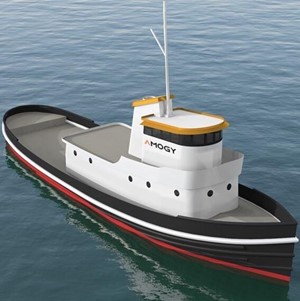News
Amogy’s ammonia-to-power system receives Approval in Principle from Lloyd's Register
Amogy has received Approval in Principle (AiP) from Lloyd’s Register, a maritime classification society responsible for ensuring new maritime technologies meet safety requirements. This accomplishment represents a significant milestone in certifying Amogy’s ammonia-to-power system for maritime applications, which will be demonstrated for the first time in a maritime vessel in 2023.
The AiP covers an ammonia power system that generates electricity from liquid ammonia to power maritime vessels. This is achieved by cracking the liquid ammonia to H2 and using the produced H2 to generate electrical power through proton-exchange membrane (PEM) fuel cells. Following this achievement, Amogy will continue the technology qualification and type approval processes, which would make the ammonia-to-power system fit for use on maritime vessels.
Amogy, backed by investors including Amazon, SK, and Saudi Aramco, has plans for a world-first zero-emission, ammonia-powered maritime demonstration in 2023. This follows previous successful demonstrations of this technology in a drone and a tractor. Furthermore, Amogy is working with industry partners across the ammonia and shipping value chains to evaluate its power solutions for commercial use in upcoming newbuild and retrofit vessels. This AiP will strengthen the company’s position to commercialize this technology.
“This important milestone is further validation in Amogy as we continue to work towards full commercialization of our innovative ammonia technology in the maritime industry,” said Seonghoon Woo, CEO of Amogy. “As we get closer to bringing our system to market, it is critical to solve unique safety challenges for the design and operation of ammonia-fueled vessels, and our team is committed to working with key partners, such as Lloyd's Register, to enable its safe adoption by the industry.”
Globally, shipping accounts for approximately 3% of GHG emissions, which is expected to climb up to 10% by 2050 if no solution is implemented. Decarbonizing this hard-to-abate industry remains a challenge due to the size and operational requirements associated with global shipping. Ammonia offers a significant potential to enable future zero-emission shipping, as the material presents high energy density and favorable economics, supported by existing transportation and storage infrastructure globally.


